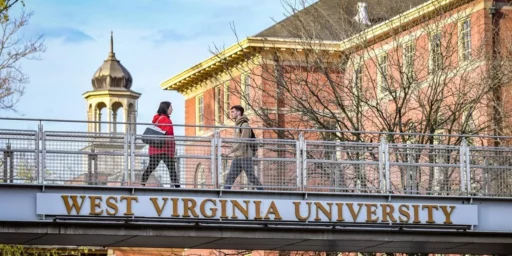Too Many PhDs
We're producing more PhDs and JDs than there are full time openings for professors and lawyers.
A piece by Richard Vedder in The Chronicle of Higher Education quantifies what we’ve known for decades: We’re producing more PhDs (and JDs) than there are full time openings for professors (and lawyers).
Looking at BLS data for 2008, over 10,500 persons with Ph.D. or professional degrees were employed as “cashiers” (excluding gaming); over 27,400 were retail salespersons; and well over 4,700 were hairdressers, hairstylists, or cosmetologists. My sidekick Chris Matgouranis found 10 occupations like these: the ones listed above plus waiters and waitresses, landscaping workers, amusement and recreation attendants, receptionists and information clerks, secretaries (except legal, medical, and executive), truck drivers (heavy and tractor-trailer) and electricians. Collectively, these occupations had well over 74,000 with doctorates or such professional degrees as a J.D. Other evidence confirms this. The Wall Street Journal recently reported that 29 percent of new lawyers were not doing legal work, consistent with the notion that there is a glut of those with doctorates and some professional degrees. The Economist recently published an article presenting evidence of very dim job prospects for many new Ph.D.’s.
What do these numbers really tell us?
I’m frankly skeptical that significant numbers of people with the brainpower and work ethic required to obtain these advanced degrees are so unappealing on the job market that they’re permanently unable to get decent jobs. What percentage of the recent lawyers and PhDs working at low end jobs do so for an extended period versus just making ends meet while they, say, study for the bar exam or go through the interview process? For that matter, how many of them are geriatrics who had long careers in their professions and just supplementing their retirement with some low stress part-time work?
To be sure, the economy is in the toilet right now. And newly minted PhDs are particularly hard hit by state budget cuts. But 9.4% unemployment means that 90.6% of those who haven’t given up looking for work altogether have jobs.
To be sure, some of this is related to the recent prolonged economic downturn. Yet stories of, say, historians, with doctorates doing all sorts of non-history type work, have been around for years. Training Ph.D.’s and professionals is extremely expensive—often six-digit amounts for the post-bachelor’s training, only part of which is billed to the student. Why are we doing this? Why, for example, doesn’t the U.S. go to perhaps 30 or 40 Ph.D. programs in history (instead of 100 or more), to train perhaps one-third the number of students that we train now? That would be enough to keep us from losing touch with our heritage, and would allow us to continually record and analyze our ever-growing past, and continue to disseminate that knowledge to a broader public.
I’m sympathetic to the idea that we have too many doctoral programs and law schools. But whether we should radically cut depends on why we’re funding these programs.
I earned my PhD in political science from the University of Alabama in 1995. Unlike many of my cohorts, I managed to actually land gainful employment teaching political science at the college level, first at the University of Tennessee at Chattanooga (a one-year, sabbatical replacement position), then at Bainbridge College (a tenure track position at a community college), and then at Troy State (a tenure track position at a four-year university). The last of these was in the state of Alabama, so the taxpayers actually got some direct return on their investment, albeit at the cost of paying my salary for those four years.
In the eight years since I left Troy, however, I haven’t been a “real” political scientist. While I’m disseminating knowledge, I’m not teaching college. But I used my skills to find gainful employment as an acquisitions editor for a book publishing house specializing in my field of expertise, as a defense contractor, and as managing editor of a foreign affairs think tank. And, of course, as a blogger and freelance public intellectual. Do I count against the notion of funding more doctorates, since I’m not teaching school?
For that matter, given the glut of PhDs on the market, the colleges and universities in the state of Alabama could easily free ride on the investments of other states. There’s no objective need for the 4.3 million residents of Alabama to fund any PhD programs, let alone hundreds of them. They could easily find people with PhDs from other states — or, indeed, the Ivy League and other elite private universities — to move to Alabama and take tenure-track teaching gigs.
But jettisoning doctoral programs would radically decrease the prestige of the state’s top universities. While Alabama and Auburn remain better known for their football teams than their academics, they’re actually reasonably well ranked institutions. Alabama’s law and medical schools are actually very high ranked. Investing in doctoral programs is a key component in building strong universities, which requires attracting the best professors.
Now, if most of the graduates of the bottom tier of doctoral programs in history are going on to become cashiers and hairdressers, we’ve got a very serious problem and should indeed close said programs. Or at least restructure their curriculum to include coursework in keyboarding and cosmetology! But I suspect the vast majority of them go on to do things related in some way to their studies, even if they’re not getting hired as academics. Maybe they go on to work at libraries and museums. Or as high school or prep school teachers. Is it worth keeping the programs open in that case?
I’ve got much less insight into the legal profession, having decided to go into the Army and then grad school rather than law school. But similar questions apply. Many people go to law school never intending to practice law. They instead use their training and credentials to go into government service, the business world, academia, journalism, and other pursuits. Do these people count against a law school’s value?
Ultimately, there are two, related questions.
Should any given individual get a PhD or JD, especially if they can’t get into a top tier school?
The answer to this depends entirely on what outcomes they find acceptable. If they will only be happy with a tenure track job at a good school (in the case of PhDs) or a partner track job at a top firm, an appellate court clerkship, or appointment as a deputy US Attorney (in the case of JDs), I’d recommend against it.
But if they’re people who genuinely enjoy learning and are flexible about their career path, why not? Being an educated person not only makes you more valuable in the workforce but it enhances your quality of life.
In either case, I’d recommend against going into debt.
Should any given program be funded by the taxpayers of a state?
Here, it gets more tricky. Vedder makes a reasonable point when he notes that much of the cost of education at state universities (although not nearly as large a share as was once the case) is borne by the taxpayers, not the students. So personal happiness is likely an inadequate justification for keeping alive weak programs.
As noted earlier in the discussion, doctoral programs tend to attract better faculty and otherwise enhance the prestige of the university. They’re also useful for attracting grant money, which can defray much of the cost. (And since the faculty who teach undergraduates will also be teaching your PhD candidates, the marginal cost difference may not be all that high.)
I would argue that states should consolidate their efforts as much as possible. Small states like Alabama probably shouldn’t find duplicate doctoral programs. Certainly, the should concentrate them at their top tier schools. I’m not sure that Alabama and Auburn should both have doctoral programs in history and political science. And the regional institutions within the state shouldn’t have doctoral programs at all.
Moreover, many, if not most, states have far too many colleges and universities, period. While there’s some value to having campuses close by so that, for example, schoolteachers can take “masters” classes in the evening, it’s an incredibly expensive enterprise to maintain massive physical plants within 20 minutes drive of every man, woman, and child in the state.
Vedder’s solution of shuttering all but the most prestigious history programs in the country strikes me as overreaching. But we should almost certainly close the very worst ones, both in terms of job placement rates and graduation rates. Then again, that’s true of most government programs.
via Glenn Reynolds







A very non-engineering view. People are shaking the trees for phone app developers right now. You’d think “a PhD” could do that.
I think you need to add one more question: to what degree are the earning prospects for those with post-graduate degrees (other than MDs) skewed by the very high incomes of graduates from a very small number of programs? Libraries and museums may hire PhDs in history but they don’t pay wages high enough for PhDs to pay off their education loans.
As I have said repeatedly, our problem isn’t that we’re not graduating enough people with post-graduate degrees. Our problem is that we’re not creating enough jobs for people with post-graduate jobs to do.
So can some high school kids. And without incurring education debt.
Well, PhDs in some programming related field could do interesting work. A friend is doing something with natural language processing …
But that said, yeah. If you know how to learn and are unafraid, all the tools for the phone apps are there online.
There are 2.5 million people in the US with doctoral degrees. 75,000 is around 3% of that number. In any group of 2.5 million people, even one composed of folks with advanced degrees, I’d expect some number of them to have “issues” (substance abuse, mental health, etc) that affect their ability to get/hold a job. Combine that with the reasons you gave (people taking work while in between jobs, etc), and 75,000 doesn’t seem like a surprisingly high number.
Of course, whether or not a PhD lands you a good job depends a lot on what the degree is in and where it comes from. Someone with a PhD in engineering or computer science from a highly-ranked school usually has little trouble getting a job in industry and may have a shot at getting one in academia. Someone with a PhD in the humanities, less so.
With respect to government funding of PhD programs, I think there’s some value to having universities, particularly the top graduate programs in the sciences & technical fields, as incubators of ideas, especially since some number of these ideas pay off in terms of helping the economy and keeping our competitive advantage. For example,Larry Page and Sergey Brin met as PhD students at Stanford. Government funding is a major contributor to being able to attract and fund such students and funds research that, not infrequently, gets spun off as a startup or picked up by industry.
“”Libraries and museums may hire PhDs in history but they don’t pay wages high enough for PhDs to pay off their education loans.””
“”””””””””””””””””””””””””””””””””””””””””””””””
Maybe that just means they charge too much for the education.
One important “lesson” that should be learned early… Don’t buy on credit!
Imagine if congress could have learned that lesson!
Back in the late Carter early Reagan years I waited tables at a restaurant where the entire wait staff had BA’s. (Well, except for me.) I found that our nightly joint by the dumpster was a much more interesting ritual than it had been at restaurants where the staff was less well-educated.
I don’t recall that I gained any particular insights into their various majors, but I did learn to appreciate the then-emerging field of premium bourbon, to understand the pacing of shooters relative to intensity of work load, and enjoyed the fact that I could use my full vocabulary to hate on customers without feeling that my buddies would find me pretentious..
I can only imagine that a waitstaff of PhD’s would be even more enlightening, so I don’t think we should do anything to choke off our supply of over-educated waiters, bartenders and barristas.
@Michael Reynolds:
You make an excellent point! And waiters in high end establishments probably make more than college professors, anyway.
That Sheldon needs to stop putting down Howard for only having a MS in engineering and they can’t be certain Penny doesn’t have a Ph.D in Anthropology and is hoping to publish a paper on the life and habits of science nerds so she can get a tenure track position.
I’m surprised these Ph.Ds and J.D.s are getting hired at these low skill jobs. Sure they’re all, “I’ll do anything” when they are desperate for a job but sooner or later after they’ve fattened up a little they start complaining about having a Ph.D. and that having to clean toilets being beneath them. Better to hire someone not too proud to do an honest days work even it the work sucks.
Wait a minute. Could this be the reason that the worse the economy gets and the harder jobs are to come by that the worse customer service seems to be becoming?
JKB, no suprise, they don’t tell the prospective employer they have a PhD or JD. In some instances, the degrees have negative value.
That chip just keeps getting bigger, doesn’t it JKB?
Obviously the government needs a program to reduce the number of Americans holding PhDs.
A kind of swords into plowshares kinda thing.
Strip them of their degrees in exchange for…something.
Like when Nixon deputized Elvis.
Have a ceremony and everything.
@PD Shaw – It’s not just degrees. A family member who has all the certifications needed for department store building maintenance has been told he was over qualified for a warehouse job opening. But then I also saw a pretty girl not be hired as a waitress because the manager didn’t think she’d stick it out.
The fact is, the government has made hiring someone very expensive and time consuming so taking a risk on someone over-qualified is not a good risk for companies. The over qualified person may come to resent the low skilled job or may find more suitable employment. Either way the company is out the hiring expense without much time to amortize the cost over the employee’s tenure.
@Ben Wolf – Chip? I’m just relating real world experience. But then I’ve also seen those indebted with a degree pay off their school loans working at a low skill entry job they took after near starvation in their entry level state job that required the degree.
@ponce – What we need is a 12-step program to help PhDs accept that they may never use their degree in their employment and that pay in their PhD field may never compare with pay for semi-skilled labor in a field such as shipping or offshore rigs where worker supply can become tight. Whereas we have more PhDs than we can shake a stick at.
The most ironic would be PhDs in economics who after completing their studies are done in by supply and demand.
I think a J.D. and $3.00 will get you a latte’ at Starbucks. Why don’t state education governance bodies meet and allocate the number of Ph. D.s (in “soft” categories like Edu. Social studies, Poli Sci, J. D.s etc.) to be granted. Applies to state-funded schools, obviously.
It is my understandoing that there is a national body that governs the number of medical schools allowed, which in turn governs the number of MDs we have.
john425, I believe or at least suspect that there are areas where legal representation is lacking because a lawyer costs too much. I’d be reluctant to push rationing in order to keep supplies at a level that allow lawyers to maintain their lifestyles.
The hardship to me appears to be due to student loans, and particularly their non-dischargeability. I think I’d get rid of the non-dischargeability rule, and allow the student lenders to adjust interest rates to match the various market risks for the education being pursued.
Shorter JKB: I stubbed my toe this morning and it was all the government’s fault!
” I suspect the vast majority of them go on to do things related in some way to their studies, even if they’re not getting hired as academics.”
You hit the nail on the head.
Are Ph.D. programs intended purely to mint professors or to transfer post-graduate level knowledge, whether the recipient will remain in academia or not?
It would seem that if PhD recipients never leave academia, then post-graduate level schooling is solely an academic “self-licking-ice-cream-cone.”
Ideally, PhD recipients will leave the groves of academe to put their hard-won knowledge to practical use in the outside world. Otherwise, what use are they? If they’re merely products of a professor-mill, then we need a lot fewer of them.
Personally, in my own field (diplomacy) there’s utility for that professional-level education in a variety of fields throughout one’s career, including law degrees, even if that doesn’t “count” in terms of the study you cite.
The fact that there are so many people (like myself) trying to get graduate degrees indicates the uncertainty we have for the future of our economy. We’re searching for 20th century jobs, and they’re just not available.
We need a stabilized economy full of productive people, not necessarily “educated” people.